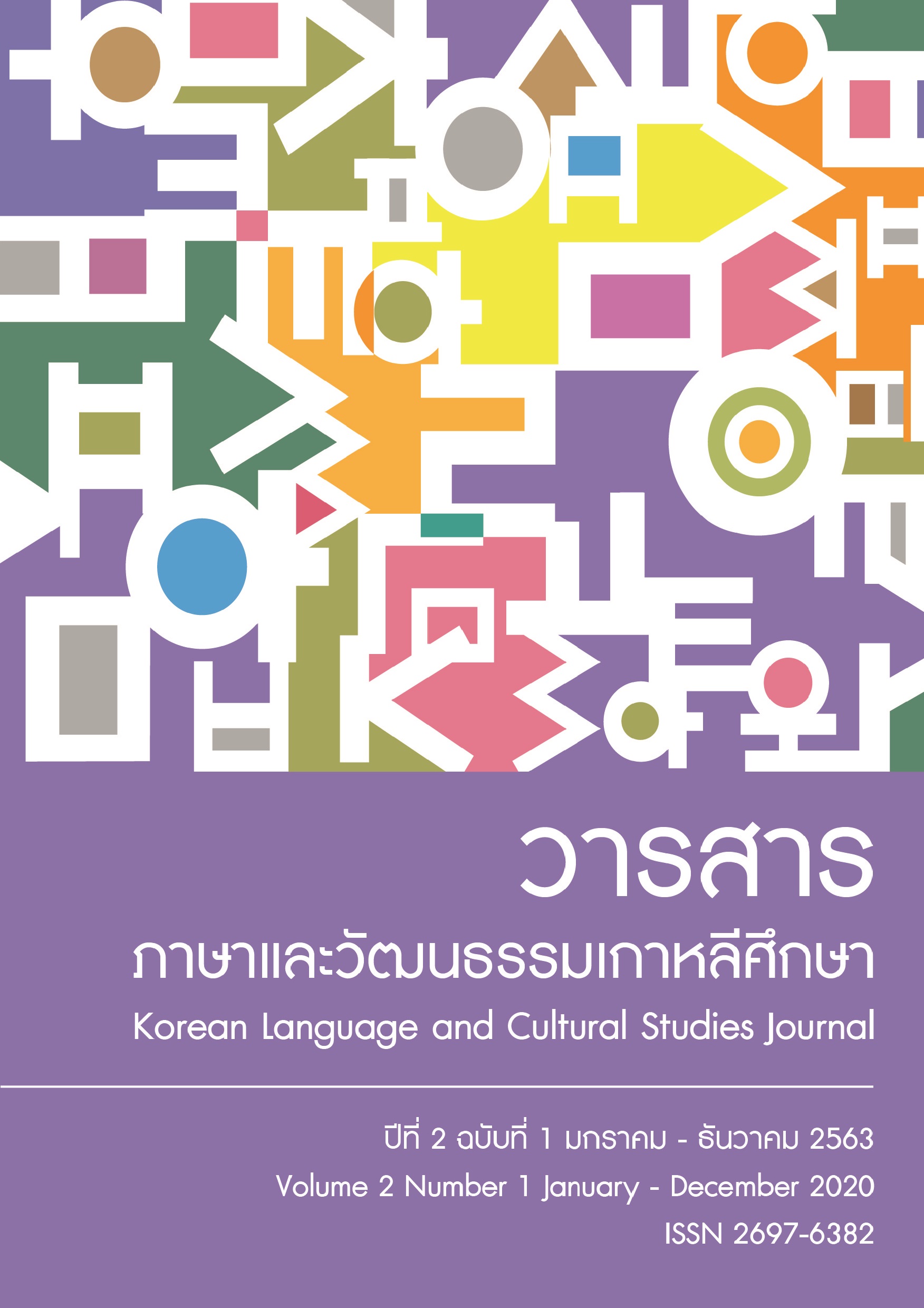Socio-cultural Relations between Thailand and Republic of Korea in Next 50 Years
Main Article Content
Abstract
This article attempts to predict, based on previous and contemporary data, the socio-cultural relationship between Thailand and South Korea in 2070. At the inter-state level, the governments would have bid greater tie as both foster and nurture each other through ASEAN connectivity manifesting on trading and international relations. The people-to-people relation, on the other hand, has become less liquidized as Koreans embrace the rationality of Capitalism with advanced technology whereas her counterpart persists partly pre-capitalist mode of production. Moreover, Thailand still maintains a vicious circle in political system of military domination. These not only create social distance between the democratic citizens but also prevail the unequal positions in both economic and social environment.
Article Details
References
………. (2018). List of Coup d’etat and Coup Attempts by Country. Wikipedia.
Retrieved January 16, 2018.
………. (2018). Japan’s Government to Aim for ‘Ageless Society’ with Planned
Policy Encouraging Seniors to Stay Healthy and Keep Working. Japan Times. January 18, 2018.
………. (2018). อีก 5 ปี 2000 คาดนักท่องเที่ยวเข้าไทยเท่ากับประชากร 71 ล้านคน.
Retrieved January 20, 2018, จาก http://oknation.nationtv.tv/blog/akom/2015/04/17/entry-1
………. (2018). Population Trends and Projections of the World and Korea.
Retrieved January 20, 2018, จาก Korea.pdf. Adobe Acrobat Reader DC
………. (2018). ASEAN-Korea Youth Perceptions: Through Selected Essays and
Research on Their Mutual Perception. Retrieved February 6, 2018, จากhttp://www.aseankorea.org/eng/Activities/activities_view.asp?pageNum=25&page=1&boa_num=12425&boa_gubun=6&pageReturn=activities&boa_cnt=&S_YEAR=&S_MONTH=&tabgubun= (ในการศึกษาครั้งนั้นพบว่าเด็กเกาหลีจะมองอาเซียนถึงเรื่อง food, vacation spots, kind people ในขณะที่เด็กจากอาเซียนจะ มองเกาหลีว่า developed country, safe, high technology/culture)
………. (2019). S. Korea’s Population Decline Set to Arrive 3 Years Earlier than
Previous Forecast. Hankyoreh. March 31, 2019.
………. (2020). South Korea Unemployment Rate 1999-2019. Retrieved January
, 2020 จาก
https://www.ceicdata.com/en/indicator/korea/unemployment-rate
………. (2020). 75% of Young Want to Escape South Korea ‘Hell,’ Retrieved
January 25, 2020.
https://www.asiatimes.com/2019/12/article/75-of-young-want-to-escape-south-korean-hell/
ASEAN-Korea Center (2017). Partnering for Tomorrow: ASEAN-Korea Relations.
Korean Institute of Southeast Asian Studies, Seoul.
Damrong Thandee (2015). Korea-Thailand Relations: Opportunities and
Challenges. ASEAN-Korea Relations: Twenty-five Years of Partnership and Friendship. Edited by Lee Choong-lyol, Hong Seok-joon and Youn Dae-yeong. Korean Institute of Southeast Asian Studies and Korean Association of Southeast Asian Studies. Seoul, South Korea: Nulmin Books Publishers.
Kim, Dong-ki and Linsu Kim (ed.) (1989). Management behind Industrialization:
Readings in Korean Business. Seoul: Korea University Press.
Nikkei Asian Review (2018). “South Korean Households up to Their Necks in
Debt,” Retrieved January 20, 2018. จาก
https://asia.nikkei.com/Politics-Economy/Economy/South-Korean-households-up-to-their-necks-in-debt
ดำรงค์ ฐานดี (2530). เกาหลีใต้: บทบาทของรัฐในการพัฒนาประเทศ. กรุงเทพฯ: โรง
พิมพ์มหาวิทยาลัยธรรมศาสตร์.
ดำรงค์ ฐานดี (2561). ความสัมพันธ์ทางสังคมและวัฒนธรรมระหว่างไทยกับเกาหลีใต้:
เหลียวหลัง-แลหน้า. เอกสาร ประกอบการสัมมนาในงาน 60 Years of Korea-Thailand Relations จัดโดยสถาบันเอเชียตะวันออกศึกษา มหาวิทยาลัยธรรมศาสตร์ สนับสนุนโดยสถานเอกอัครราชทูตสาธารณรัฐเกาหลีประจำประเทศไทย ในวันที่ 13 มิถุนายน 2561 ที่ห้องแกรนด์ บอลล์รูม โรงแรม Radison Blu Plaza กรุงเทพมหานคร
ปัทมา ว่าพัฒนวงศ์และปราโมทย์ ประสาทกุล (2018). ประชากรไทยในอนาคต.
Retrieved January 20, 2018. จาก http://www.ipsr.mahidol.ac.th/IPSR/AnnualConference/ConferenceII/Articl e/Article02.htm


